By my count, 157 new packages stuck to CRAN in December. Below are my “Top 40” picks in ten categories: Computational Methods, Data, Finance, Machine Learning, Medicine, Science, Statistics, Time Series, Utilities and Visualization. This is the first time I have used the Medicine category. I am pleased that a few packages that appear to have clinical use made the cut. Also noteworthy in this month’s selection are the inclusion of four packages from the Microsoft Azure team (stuffing 41 packages into the “Top 40”), and some eclectic, but fascinating packages in the Science section.
Computational Methods
ar.matrix v0.1.0: Provides functions that use precision matrices and Choleski factorization to simulates auto-regressive data. The README offers examples.

mvp v1.0-2: Provides functions for the fast symbolic manipulation polynomials. See the vignette and this R Journal paper for details on how to create this image of the Rosenbrock function.

pomdp v0.9.1: Provides an interface to pomdp-solve, a solver for Partially Observable Markov Decision Processes (POMDP). See the vignette for examples.
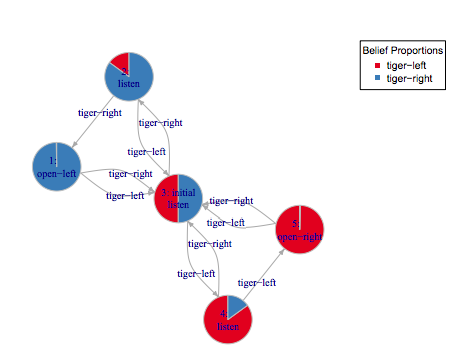
Data
dbparser v1.0.0: Provides a tool for parsing the DrugBank XML database. The vignette shows how to get started.
rdhs v0.6.1: Implements a client querying the DHS API to download and manipulate survey datasets and metadata. There are introductions to using rdhs and the rdhs client, an extended example about Anemia prevalence, and vignettes on Country Codes, Interacting with the geojson API results, and Testing.
Finance
optionstrat v1.0.0: Implements the Black-Scholes-Merton option pricing model to calculate key option analytics and graphical analysis of various option strategies. See the vignette.
riskParityPortfolio v0.1.1: Provides functions to design risk parity portfolios for financial investment. In addition to the vanilla formulation, where the risk contributions are perfectly equalized, many other formulations are considered that allow for box constraints and short selling. The package is based on the papers: Feng and Palomar (2015), Spinu (2013), and Griveau-Billion et al.(2013). See the vignette for an example.
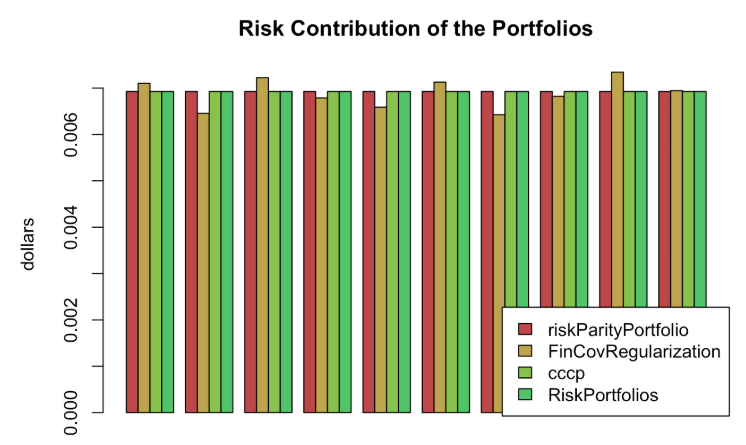
Machine Learning
BTM v0.2: Provides functions to find Biterm topics in collections of short texts. In contrast to topic models, which analyze word-document co-occurrence, biterms consist of two words co-occurring in the same short text window.
ParBayesianOptimization v0.0.1: Provides a framework for optimizing Bayesian hyperparameters according to the methods described in Snoek et al. (2012). There are vignettes on standard and advanced features.
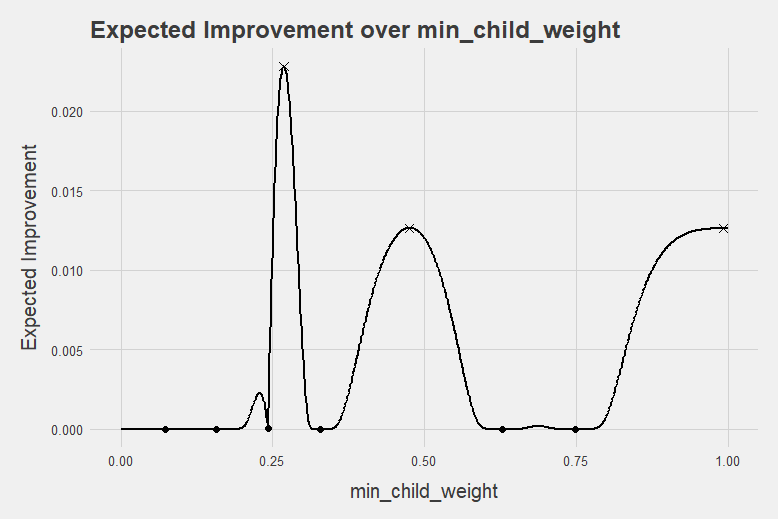
Medicine
LUCIDus v0.9.0: Implements the LUCID method to jointly estimate latent unknown clusters/subgroups with integrated data. See the vignette for details.
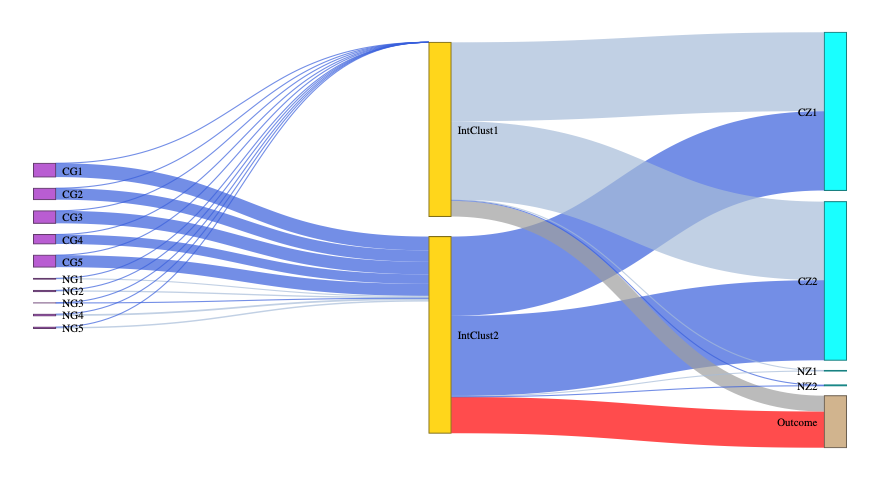
metaRMST v1.0.0: Provides functions that use individual patient-level data to produce a multivariate meta-analysis of randomized controlled trials with the difference in restricted mean survival times ( RMSTD ).
webddx v0.1.0: Implements a differential-diagnosis generating tool. Given a list of symptoms, the function query_fz queries the FindZebra website and returns a differential-diagnosis list.
Science
bioRad v0.4.0: Provides functions to extract, visualize, and summarize aerial movements of birds and insects from weather radar data. There is an Introduction and a vignette on Exercises.
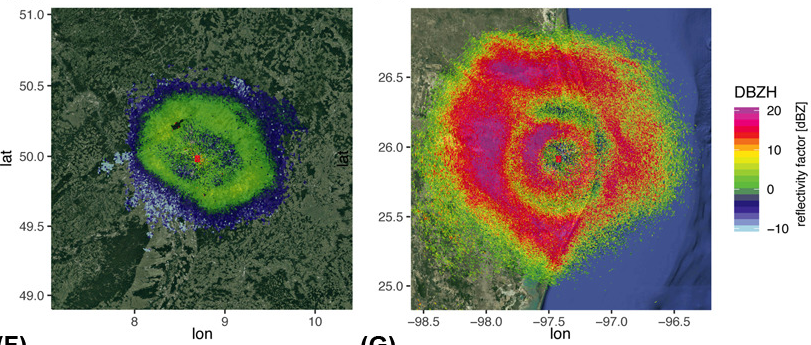
pmd v0.1.1: Implements the paired mass distance analysis proposed in Yu, Olkowicz and Pawliszyn (2018) for gas/liquid chromatography–mass spectrometry. See the vignette for an introduction.
tabula v1.0.0: Provides functions to examine archaeological count data and includes several measures of diversity. There are vignettes on Diversity Measures, Matrix Classes, and Matrix Seriation. This last vignette includes an example reproducing the results of Peeples and Schachner (2012).
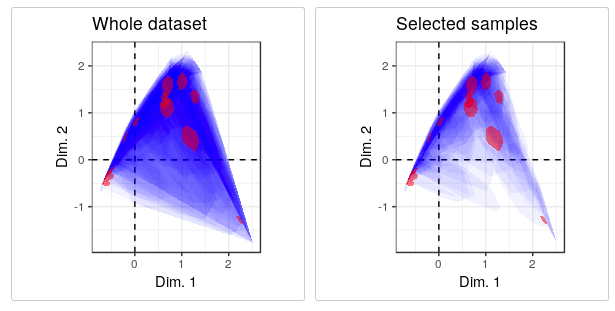
traitdataform v0.5.2: Provides functions to assist with handling ecological trait data and applying the Ecological Trait-Data Standard terminology described in Schneider et al. (2018).
waterquality v0.2.2: Implements over 45 algorithms to develop water quality indices from satellite reflectance imagery. The vignette introduces the package.
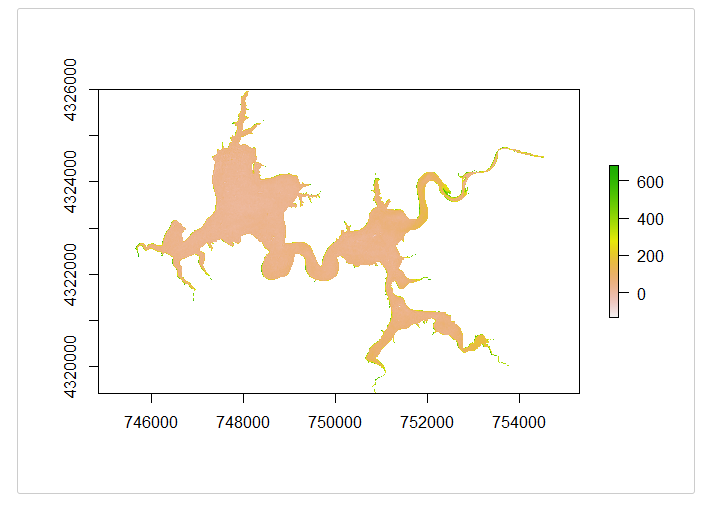
Statistics
areal v0.1.2: Implements areal weighted interpolation with support for multiple variables in a workflow that is compatible with the tidyverse and sf frameworks. There are vignettes on Areal Interpolation, Wieghted Areal Interpoaltion, and Preparing Data for Interpolation.
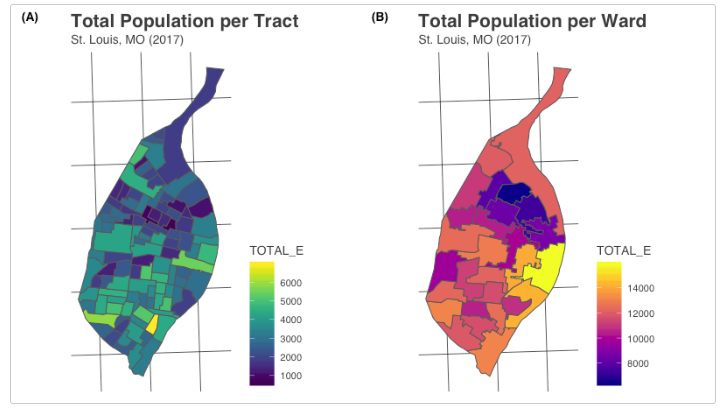
FLAME v1.0.0: Implements the Fast Large-scale Almost Matching Exactly algorithm of Roy et al. (2017) for causal inference. Look at the README to get started.
mistr v0.0.1: Offers a computational framework for mixture distributions with a focus on composite models. There is an Introduction and a vignette on Extensions.
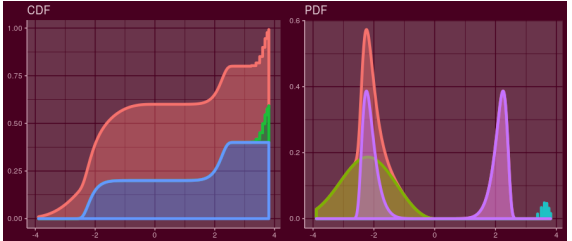
mlergm v0.1: Provides functions to estimate exponential-family random graph models for multilevel network data, assuming the multilevel structure is observed. There is a Tutorial.
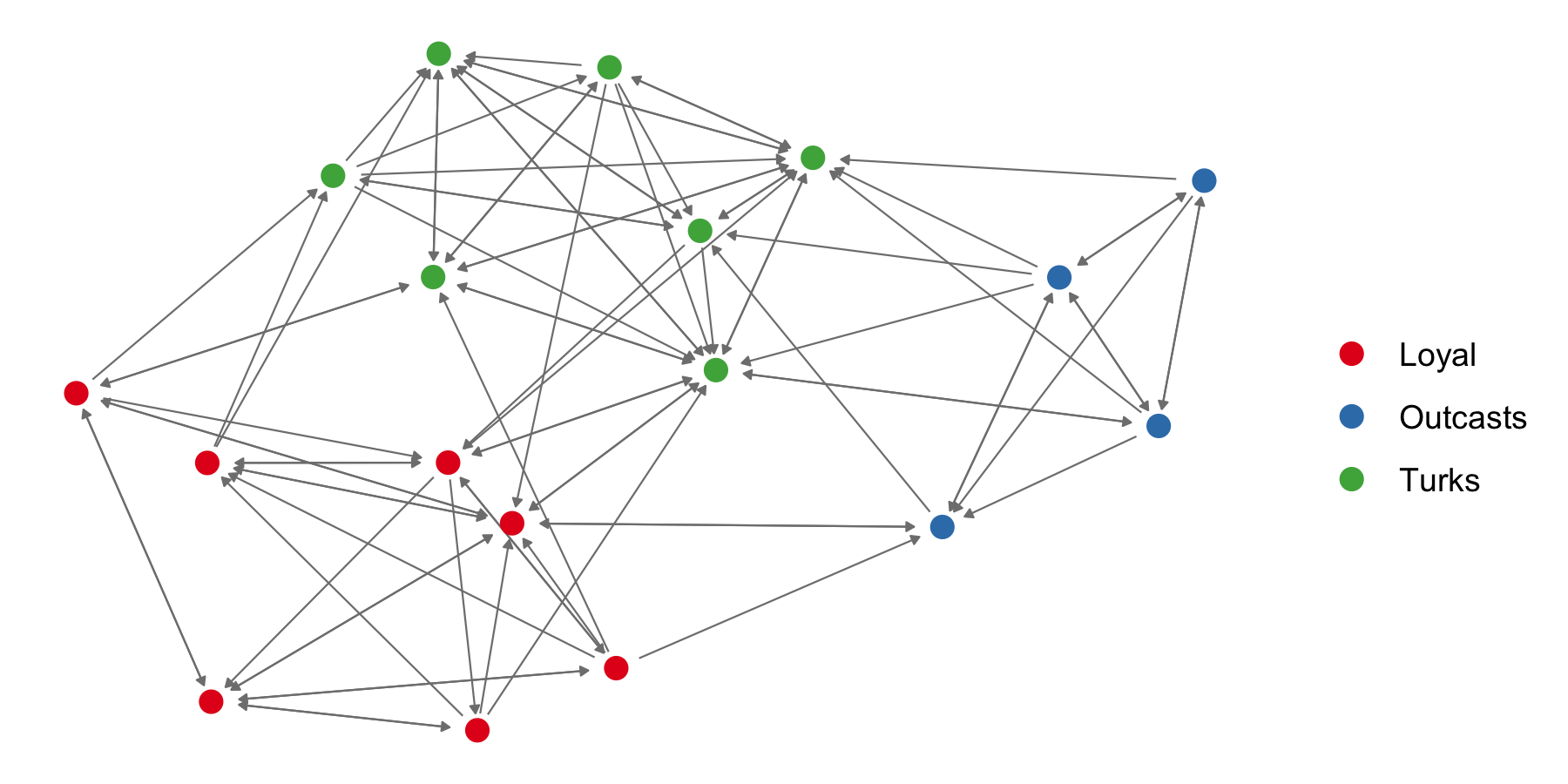
MTLR v0.1.0: Implements the Multi-Task Logistic Regression (MTLR) proposed by Yu et al. (2011). See the vignette.
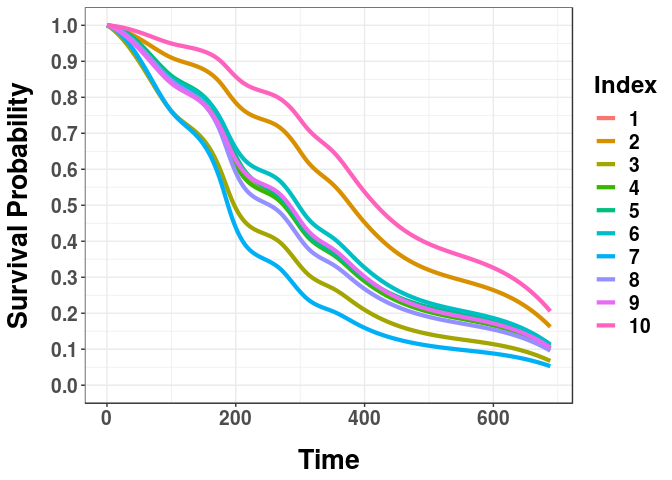
mulitRDPG v1.0.1: Provides functions to fit the Multiple Random Dot Product Graph Model and performs a test for whether two networks come from the same distribution. See Nielsen and Witten (2018) for details.
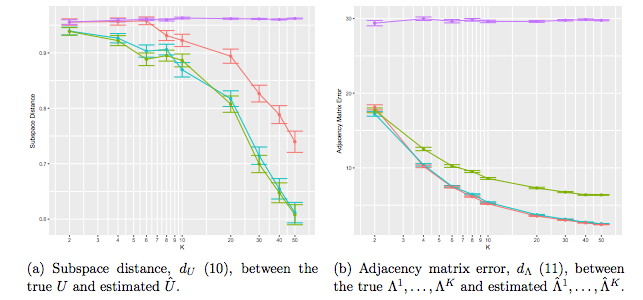
ocp v0.1.0: Implements the Bayesian online changepoint detection method of Adams and MacKay (2007) for univariate or multivariate data. Gaussian and Poisson probability models are implemented. The vignette provides an introduction.

probably v0.0.1: Provides tools for post-processing class probability estimates. See the vignettes Where does probability fit in? and Equivocal Zones.
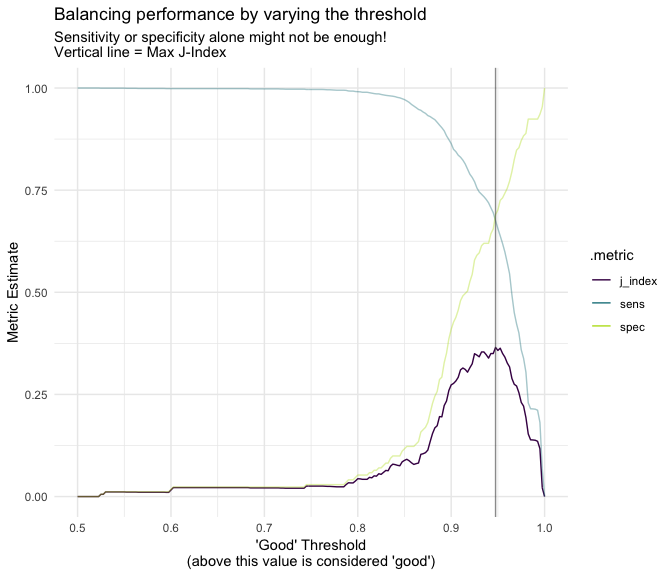
smurf v1.0.0: Implements the SMuRF algorithm of Devriendt et al. (2018) to fit generalized linear models (GLMs) with multiple types of predictors via regularized maximum likelihood. See the package Introduction.
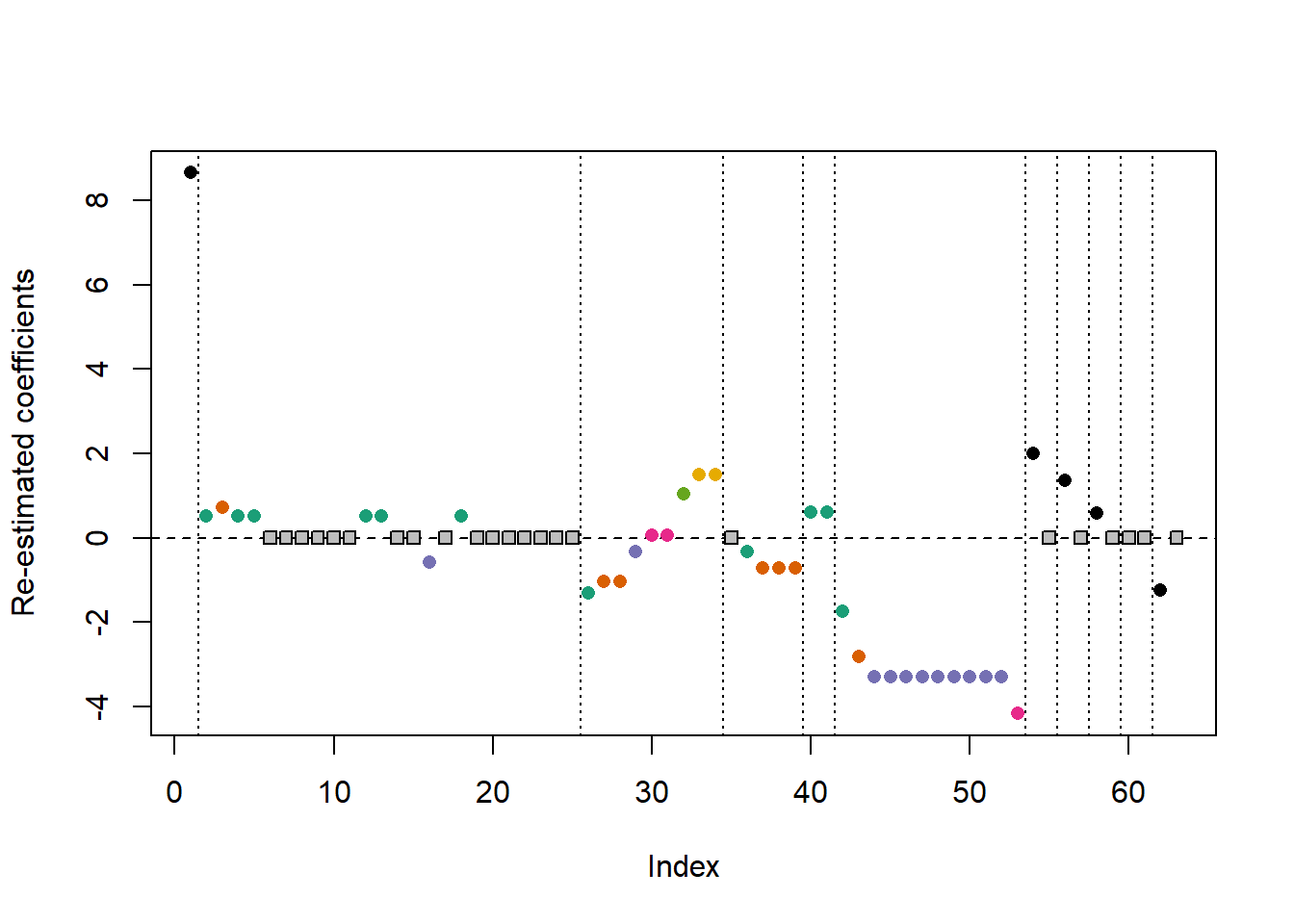
subtee v0.3-4: Provides functions for naive and adjusted treatment effect estimation for subgroups. Proposes model averaging Bornkamp et al. (2016) and bagging Rosenkranz (2016) to address the problem of selection bias in treatment effect estimation for subgroups. There is a Introduction and vignettes for the plot and subbuild functions.
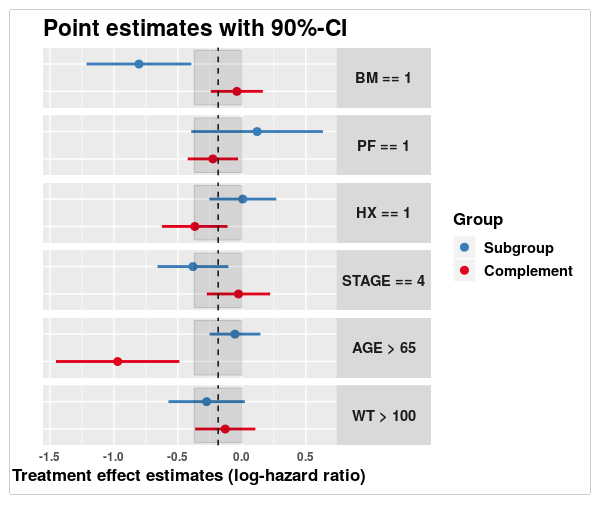
xspliner v0.0.2: Provides functions to assist model building using surrogate black-box models to train interpretable spline based, additive models. There are vignettes on Basic Theory and Usage, Automation, Classification, Use Cases, Graphics, Extra Information, and the xspliner Environment.
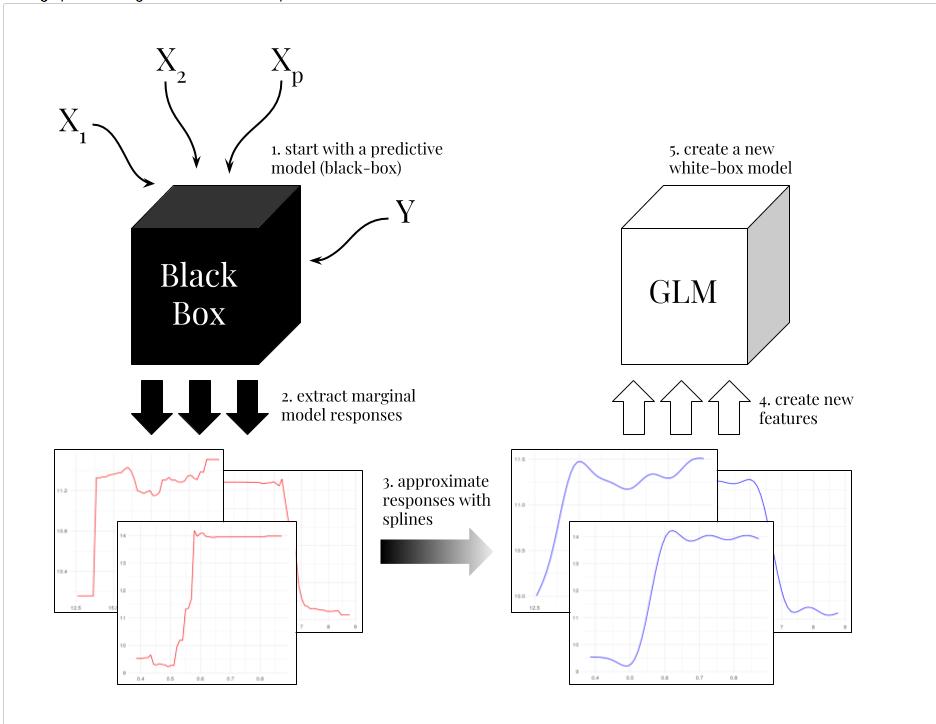
Time Series
mfbvar v0.4.0: Provides functions for estimating mixed-frequency Bayesian vector autoregressive (VAR) models with Minnesota or steady-state priors as those used by Schorfheide and Song (2015), or by Ankargren, Unosson and Yang (2018). Look at the GitHub page for an example.
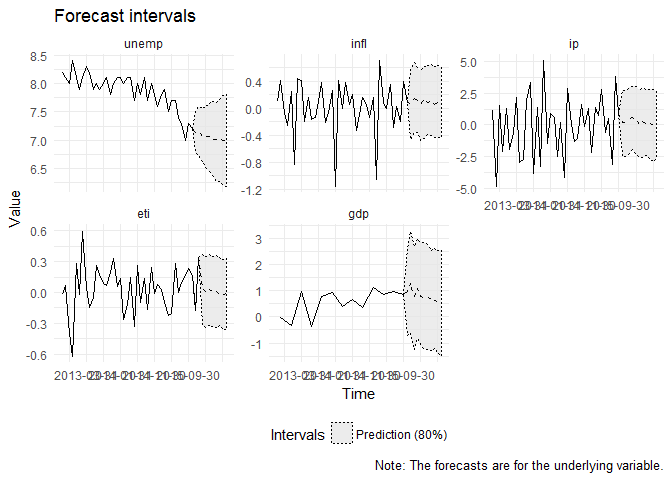
NTS v1.0.0: Provides functions to simulate, estimate, predict, and identify models for nonlinear time series.
Utilities
AzureContainers v1.0.0: Implements an interface to container functionality in Microsoft’s Azure cloud that enables users to manage the the Azure Container Instance, Azure Container Registry, and Azure Kubernetes Service. There are vignettes on Plumber model deployment and Machine Learning server model deployment.
AzureRMR v1.0.0: Implements lightweight interface to the Azure Resource Manager REST API. The package exposes classes and methods for OAuth authentication and working with subscriptions and resource group. There is an Introduction and a vignette on Extending AzureRMR.
AzureStor v1.0.0: Provides tools to manage storage in Microsoft’s Azure cloud. See the Introduction.
AzureVM v1.0.0: Implements tools for working with virtual machines and clusters of virtual machines in Microsoft’s Azure cloud. See the Introduction.
cliapp v0.1.0: Provides functions that facilitate creating rich command line applications with colors, headings, lists, alerts, progress bars, and custom CSS-based themes. See the README for examples.
projects v0.1.0: Provides a project infrastructure with a focus on manuscript creation. See the README for the conceptual framework and an introduction to the package.

remedy v0.1.0: Implements an RStudio Addin offering shortcuts for writing in Markdown.
solartime v0.0.1: Provides functions for computing sun position and times of sunrise and sunset. The vignette offers an overview.
Visualization
easyalluvial v0.1.8: Provides functions to simplify Alluvial plots for visualizing categorical data over multiple dimensions as flows. See Rosvall and Bergstrom (2010). See the README for details.
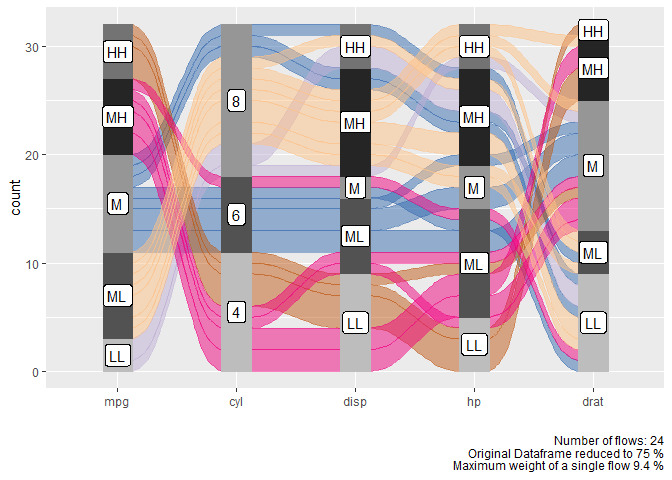
spatialwidget v0.2: Provides functions for converting R objects, such as simple features, into structures suitable for use in htmlwidgets mapping libraries. See the vignette for details.
transformr v0.1.1: Provides an extensive framework for manipulating the shapes of polygons and paths and can be seen as the spatial brother to the tweenr package. See the README for details.

You may leave a comment below or discuss the post in the forum community.rstudio.com.